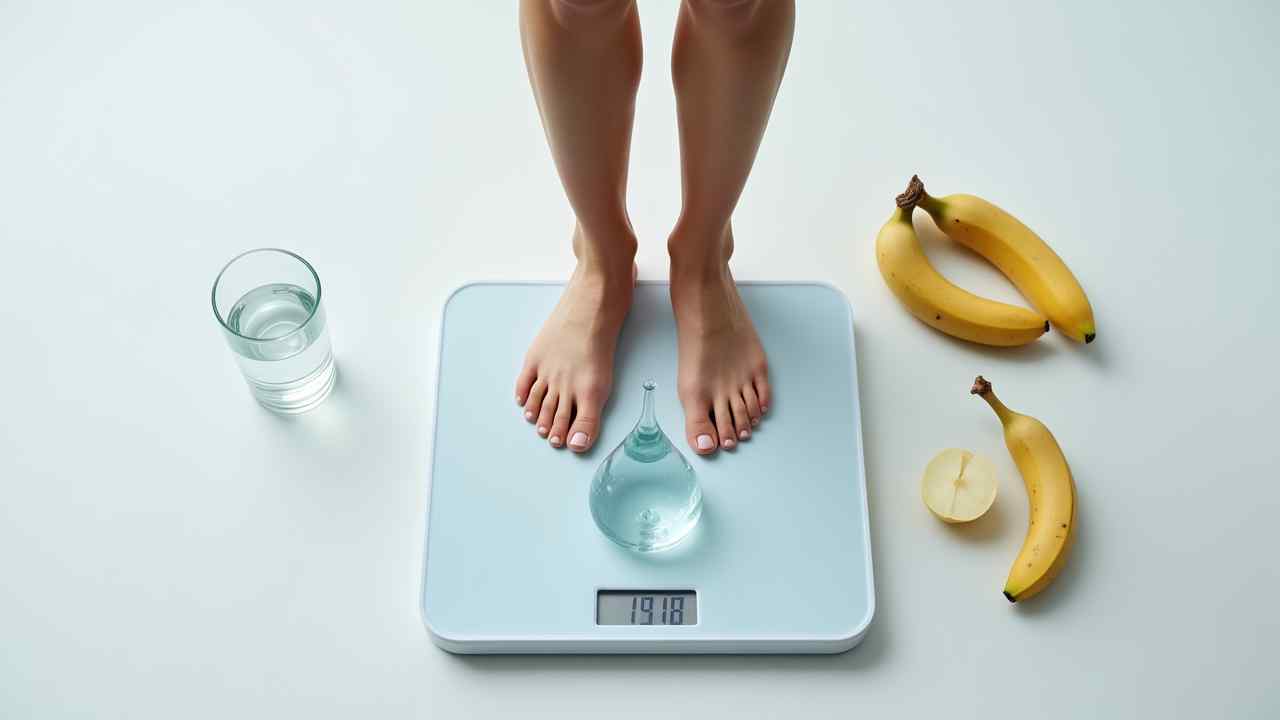
🎈 Does Bloating Cause Weight Gain? A Dietitian Explains
🎈 Does Bloating Cause Weight Gain? (The Difference Between Water & Fat) 🎈
It is a frustrating and familiar feeling. Your stomach feels tight and puffy, and your clothes feel snug. You step on the scale, and the number is a few pounds higher than it was yesterday. This can be very discouraging, especially if you are on a weight loss journey.
This experience leads to a very common question: does bloating cause weight gain? The answer is a little complex. It is a "no, but..." situation. Understanding the difference between bloating and true weight gain is key to your peace of mind.
This guide will explain what is really happening in your body. We will cover the common causes of bloating and how you can find relief. Let's clear up the confusion. ✅
🤔 What is the Difference Between Weight Gain and Bloating?
This is the most important distinction to understand. While they can both make the number on the scale go up, they are two very different things. Knowing the difference can help you manage your expectations and reduce anxiety.
True weight gain is an increase in your body's mass. This is usually from an increase in body fat or muscle. It happens over a longer period. It is the result of being in a consistent calorie surplus (consuming more calories than you burn).
Bloating, on the other hand, is a temporary condition. It is caused by excess gas in your digestive system or by your body holding onto excess water. This is called fluid retention. This is what causes the temporary increase on the scale.
💧 Why Does Bloating Make the Scale Go Up?
So, if the answer to "do bloating cause weight gain" is no, why is the scale number higher? The reason is simple: water weight. Our body weight can fluctuate by several pounds in a single day. This is almost entirely due to changes in our fluid balance.
When your body holds onto extra water, it shows up on the scale. Water is heavy. A single liter of water weighs about 2.2 pounds (1 kg). This is why a salty meal can cause a sudden jump in your weight overnight.
It is crucial to remember that this is not fat gain. It is a temporary fluctuation. The weight will go back down as your body flushes out the excess fluid. This is why it is best to weigh yourself less frequently. Focus on the long-term trend, not the daily ups and downs.
- What Are the Common Causes of Bloating and Water Retention?
Understanding the common triggers can help you manage bloating. Many everyday habits and foods can cause your body to hold onto water or produce excess gas. Here are some of the main culprits.
- A High-Salt (Sodium) Diet: This is the number one cause of water retention. When you eat a lot of salty foods, your body holds onto water to dilute the sodium.
- Hormonal Fluctuations: Many women experience significant bloating and water retention in the days leading up to their period. This is a normal part of the menstrual cycle.
- Constipation: When your digestive system is backed up, it can lead to a buildup of gas and a bloated, uncomfortable feeling.
- Carbonated Drinks: The bubbles in soda and sparkling water can introduce excess gas into your stomach.
⭐ How Can You Reduce Bloating?
You can find relief from bloating with a few simple lifestyle changes. These habits can help your body release excess water and gas.
Drink More Water. It sounds counterintuitive, but staying well-hydrated helps your body flush out excess sodium. Reduce Your Sodium Intake. Pay attention to the salt content in packaged and restaurant foods. Increase Potassium. Eat potassium-rich foods like bananas and avocados. Potassium helps to balance sodium levels. Finally, gentle movement like walking can help to get your digestive system moving and relieve gas. A cup of peppermint tea can also be very soothing. 🍵